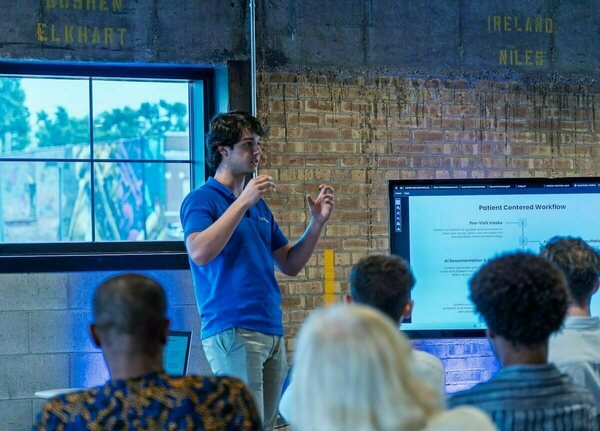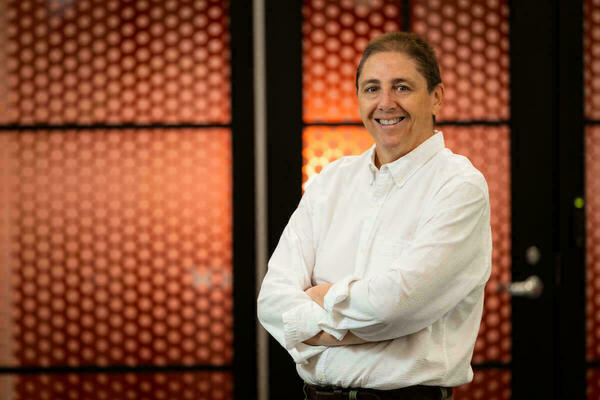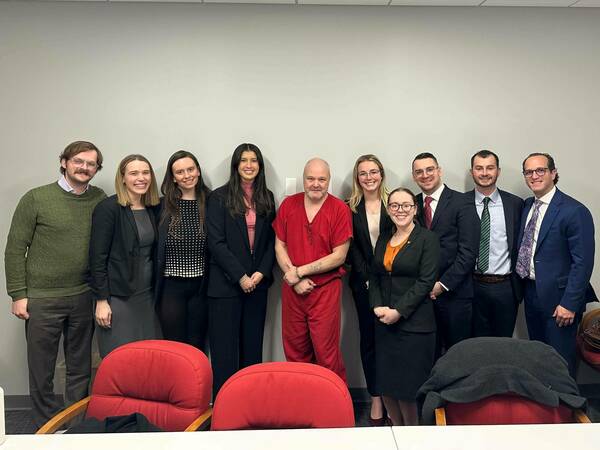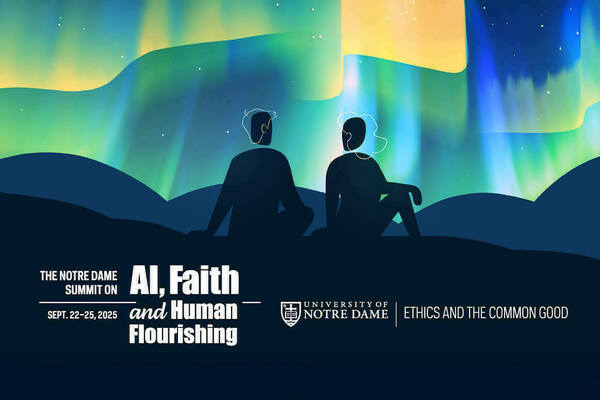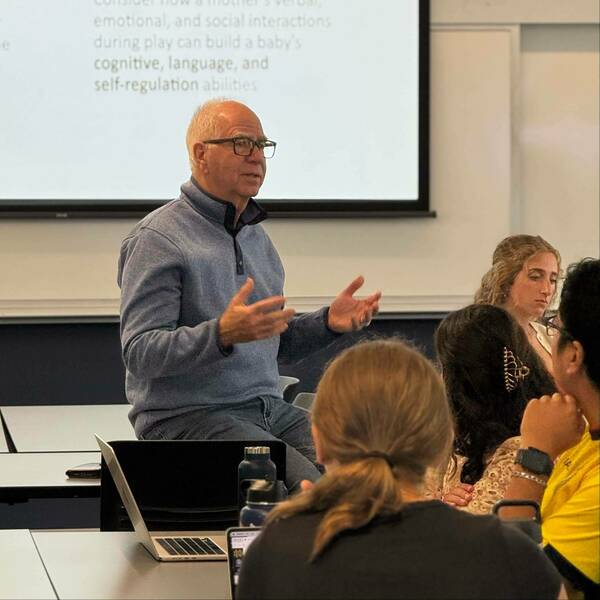‘Prebunking’ false election claims may boost trust in elections

In recent years, democracies worldwide have seen a growing erosion of trust in election outcomes and institutions, driven in part by fears of widespread fraud. As the digital age continues to transform the ways in which people consume information, online election misinformation has expanded at an unprecedented pace. Amplified by highly polarized political climates, this trend poses a significant threat to public confidence in democratic electoral systems.
A new multi-country study published in the American Association for the Advancement of Science’s journal Science Advances, by researchers from the University of Notre Dame, Dartmouth College, the University of Groningen, and the University of Southampton, finds that “prebunking” — providing accurate information before false claims spread — boosts trust in elections more effectively than traditional fact-checking.
The team conducted three large-scale case studies using results from elections in the United States and Brazil — two countries where fraud misinformation has undermined trust in elections.
The studies found that prebunking messages were consistently effective, especially among individuals who were previously misinformed. However, the research also found that adding forewarnings — alerting people they might be misled — can reduce the effectiveness of prebunking.
“This research shows that facts, when delivered plainly and ahead of misinformation, can minimize the effect of inaccurate information,” said Brian Fogarty, associate professor of the practice at the Lucy Family Institute for Data & Society and a co-author of the study. “But, when we warn people that they might be misled, especially in a highly polarized environment, they can become more skeptical of the message itself.”
Fogarty, also a concurrent associate professor of the practice in the Department of Political Science, worked with co-authors John M. Carey and Brendan Nyhan of Dartmouth College, Marília Gehrke of the University of Groningen and Jason Reifler of the University of Southampton to conduct the study.
Across the three case studies — before the U.S. 2022 midterm elections, after the 2022 Brazil presidential election and in a follow-up study to prebunk with and without forewarning in the U.S. — the team compared two commonly used approaches for correcting misinformation. The first approach investigated situational credible sources delivered by political figures to confirm the legitimacy of elections. The second approach, prebunking, was used to provide factual information before exposure to misinformation in the hopes that preemptively encoding information into an individual’s memory may shape how subsequent information is processed.
Using surveys timed around national elections in the U.S. and Brazil, the researchers tested how situationally credible sources and prebunking messages influenced beliefs about elections. Participants were randomly assigned to view the different types of correction approaches and then answered questions about their confidence in elections, perceptions of fraud and factual accuracy. The data from the surveys were then analyzed to assess how these interventions shaped public opinion.
In the analysis of the 2022 U.S. midterms, researchers found that both corrections and prebunking approaches boosted voter confidence — but prebunking had a longer-lasting impact on beliefs about voter fraud, especially among the most misinformed.
Similar effects emerged in Brazil after the contentious 2022 presidential election, where prebunking proved even more effective at instilling election confidence and factual accuracy. “In Brazil, we saw a particularly strong effect from prebunking,” Fogarty said. “The facts were nonpartisan and required no background knowledge about political actors, making prebunking especially promising in fast-moving political environments.”
The results of the follow-up U.S. study revealed that prebunking was significantly more effective when information was delivered without forewarning. In fact, including warnings about misleading information slightly reduced effectiveness, particularly among Republican participants.
The research suggests that prebunking offers several advantages — it is nonpartisan, does not require context about a particular election, and is effective at reaching broad audiences, making it a promising tool for policymakers, platforms and journalists.
Still, Fogarty cautions that additional studies are needed to assess prebunking’s long-term effectiveness, application in different cultural settings and interaction with real-world media environments. “I’m optimistic that even though there is still research to be done, prebunking can be considered as a powerful tool for countering election misinformation — especially when it’s delivered clearly, early and without partisan cues to support informed citizens and resilient democracies,” he said.
“This project exemplifies the Lucy Family Institute’s research ethos of interdisciplinary scholarship that addresses complex societal challenges through domain-informed and data-driven approaches, supporting efforts to build trust and resilience in democratic processes,” said Nitesh Chawla, founding director of the Lucy Family Institute for Data & Society and the Frank M. Freimann Professor of Computer Science and Engineering.
Contact: Jessica Sieff, associate director of media relations, 574-631-3933 or jsieff@nd.edu
Contact: Tracy DeStazio, associate director of media relations, 574-631-9958 or tdestazi@nd.edu
Originally published by at news.nd.edu on August 29, 2025.
Latest Research
- Notre Dame’s seventh edition of Race to Revenue culminates in Demo Day, a celebration of student and alumni entrepreneurship…
- Managing director brings interdisciplinary background to Bioengineering & Life Sciences InitiativeThis story is part of a series of features highlighting the managing directors of the University's strategic initiatives. The managing directors are key (senior) staff members who work directly with the…
- Monsoon mechanics: civil engineers look for answers in the Bay of BengalOff the southwestern coast of India, a pool of unusually warm water forms, reaching 100 feet below the surface. Soon after, the air above begins to churn, triggering the summer monsoon season with its life-giving yet sometimes catastrophic rains. To better understand the link between the formation of the warm pool and the monsoon’s onset, five members of the University of Notre Dame’s Environmental Fluid Mechanics Laboratory set sail into the Bay of Bengal aboard the Thomas G. Thompson, a 274-foot vessel for oceanographic research.
- Exoneration Justice Clinic Victory: Jason Hubbell’s 1999 Murder Conviction Is VacatedThis past Friday, September 12, Bartholomew County Circuit Court Judge Kelly S. Benjamin entered an order vacating Exoneration Justice Clinic (EJC) client Jason Hubbell’s 1999 convictions for murder and criminal confinement based on the State of Indiana’s withholding of material exculpatory evidence implicating another man in the murder.
- Notre Dame to host summit on AI, faith and human flourishing, introducing new DELTA frameworkThe Institute for Ethics and the Common Good and the Notre Dame Ethics Initiative will host the Notre Dame Summit on AI, Faith and Human Flourishing on the University’s campus from Monday, Sept. 22 through Thursday, Sept. 25. This event will draw together a dynamic, ecumenical group of educators, faith leaders, technologists, journalists, policymakers and young people who believe in the enduring relevance of Christian ethical thought in a world of powerful AI.
- Preparing Global Leaders: Notre Dame Students Put Early Childhood Development Science into PracticeThis fall, Notre Dame students are turning research into real-world solutions. In a unique course, Early Childhood Development and Poverty Alleviation: A Global Perspective, 27 students are learning how the science of early childhood development can break cycles of poverty — and then applying…








